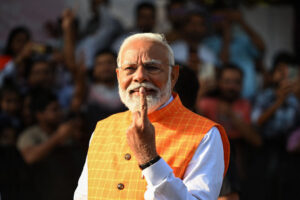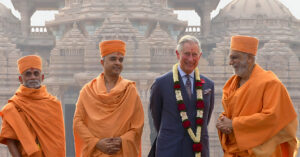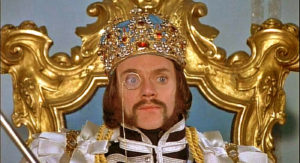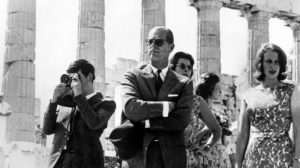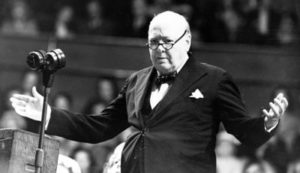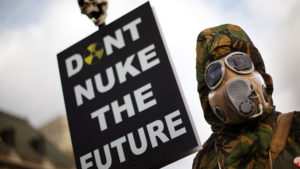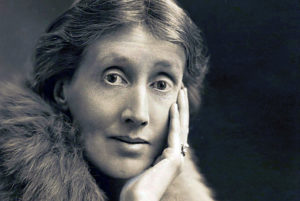It seemed like a perfectly sensible policy at the time, but with the coherence of hindsight, it can now be seen as the first in a concatenation of cock-ups. The year was 1772. The East India Company was in charge …
William Dalrymple’s colonial complex
There was a time, still hovering on the limits of living memory, when Britain specialised in the manufacture of William Dalrymples. Eton and Harrow squabbled annually over who had produced the most William Dalrymples; Oxbridge was little more than a …
The dawn of America’s monarchy
When James II was deposed in 1688, and replaced by William of Orange, it was a bloodless affair. That so-called “Glorious Revolution” gave England a constitutional monarchy — as well as a remarkably nonviolent political order.
In the centuries that …
The Empireland delusion
Sathnam Sanghera is not fighting a “culture war”. The growing shelf of imperial history under his name might verge on the zone of engagement, and certainly emerged at a time of global reckoning over colonialism and race, but they are …
Violence stalks Gaza through history
Where does the story of Gaza begin? In this region, history — or histories, given that here there is no such thing as a singular history — is serially and violently contested. “Anyone who tells a story knows that most …
Britain’s forgotten European empire
When King Charles ascended the throne to the sonorous chants of a Greek Orthodox choir, the compelling fusion of British and Byzantine ceremony struck onlookers as a strange and mysterious novelty. But in one sense, it was the natural result …
Blackadder and the end of history
In the first days of 2014, the then-education secretary, Michael Gove, addressed the forthcoming centenary of the First World War. “It’s important that we don’t succumb to some of the myths which have grown up about the conflict in the …
America’s empire is bankrupt
Let’s start with the basics. Roughly 5% of the human race currently live in the United States of America. That very small fraction of humanity, until quite recently, enjoyed about a third of the world’s energy resources and manufactured products …
We are living in Mystic Meg’s world
In 1564, John Dee was “appointed Royal Advisor in mystic secrets”, official astrologer and magician to Elizabeth I. If he had been born in the 20th century, would the astronomer, scientist and occultist have ended up writing for the News …
Why doesn’t Scotland love King Charles?
When the Queen died at her country estate in Scotland, crowds lined the streets as her hearse crept its way from Balmoral to Edinburgh. There were no indications that her subjects north of the border mourned her any less than …
Brexit exposed the Westminster elite
On New Year’s Day, this year a liminal moment between a bad 2022 and what is sure to be a worse 2023, how are we to mark the 50th anniversary of Britain’s ill-starred entry into the European Community? Perhaps some …
Harry Flashman’s imperial morality
I suppose it’s only a matter of time before the times catch up with George MacDonald Fraser’s Flashman books. One can imagine the scene: an earnest young editor picks up a copy of the books, drawn to them by the …
How Britain became an American colony
It is difficult to imagine Ralph Waldo Emerson enjoying the World Cup. As the champion of the Transcendentalist movement, the sage of Concord was the embodiment of 19th-century high-mindedness, far more comfortable discussing the beauties of nature and the oneness …
Who cancelled English folklore?
Sleeping Beauty. Cinderella. Puss-in-Boots. All names with which most of us are familiar. But in Britain, when it comes to our own folk tales, myths and legends, most are long forgotten. Few of us know the names of Woden, Herne …
Jan Morris: prophet of our gender troubles
“Do you remember,” the late Jan Morris asked our late Queen, “when they climbed Everest for the first time, and the news came to you on the day before your coronation?”
It was 2001. The writer and the monarch were …

